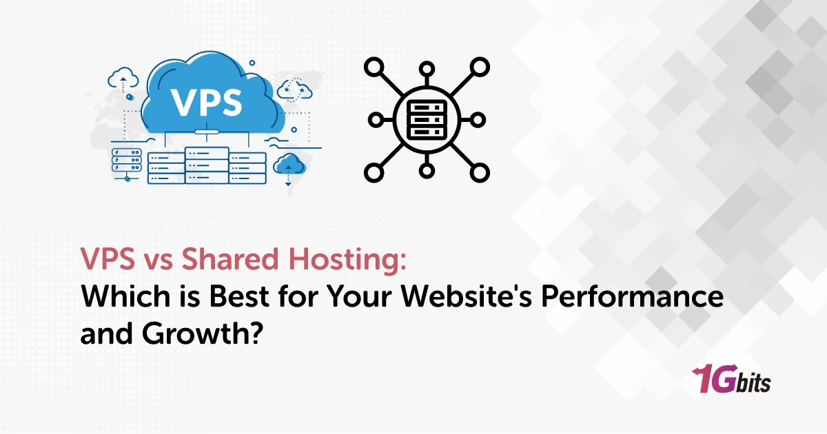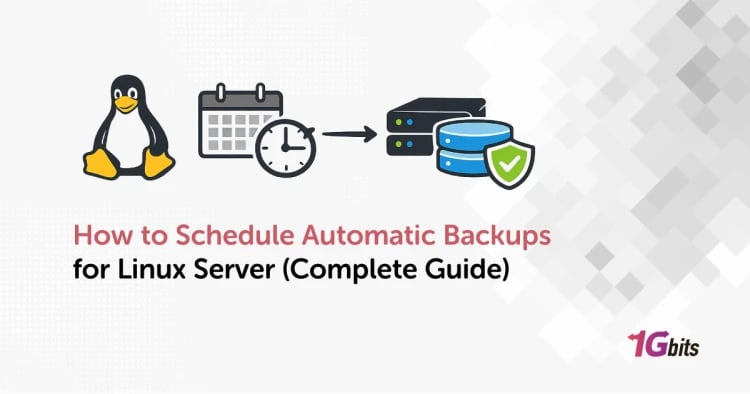When choosing a hosting solution for your website, understanding the differences between VPS vs shared hosting is crucial. Both options offer distinct advantages depending on your needs, budget, and technical requirements. VPS vs shared hosting is often discussed in terms of performance, cost, and control. Shared hosting is typically more affordable, but it comes with limitations in speed, resources, and customization. On the other hand, VPS hosting vs shared hosting offers better performance, greater control, and the ability to scale as your website grows. If you're considering shared hosting vs VPS hosting, it's important to weigh factors like website traffic, resource demands, and budget. The debate between shared vs VPS hosting can be extended to compare even more hosting types, such as dedicated vs VPS vs shared hosting and cloud vs VPS hosting. Ultimately, the right choice will depend on your website's needs, with VPS vs shared hosting speed, security, and flexibility.
What Is Shared Hosting
Shared hosting is a type of web hosting where multiple websites share the same server resources, such as CPU, memory, and bandwidth. It is one of the most cost-effective hosting solutions, making it a popular choice for small websites, blogs, and startups. However, when comparing VPS vs shared hosting, shared hosting offers limited flexibility and resources, as your website is essentially competing with others on the same server. This can result in slower speeds, especially during high traffic periods.
When you compare shared hosting vs VPS hosting, the key difference lies in resource allocation and control. A VPS server vs shared hosting provides more power, customization, and the ability to handle higher traffic. For websites that require more resources, shared hosting vs VPS vs dedicated comes into play, with dedicated hosting offering even more control but at a higher cost. Shared web hosting vs VPS highlights the performance trade-offs, where VPS hosting provides better speed, security, and flexibility.
In a broader comparison, shared hosting vs VPS vs dedicated vs cloud looks at various hosting options, each with distinct advantages. While is VPS hosting faster than shared hosting, it’s often the better choice for websites needing more reliability and speed. Ultimately, the difference between VPS and shared hosting boils down to resource control, performance, and scalability—VPS hosting vs shared hosting usually wins for larger or growing websites. For More Details read What Is VPS Hosting.
For reading VPS Uses read VPS Uses and Use Cases. Also, If You want buy VPS, visit Buy VPS Hosting.
Why Choose Shared Hosting
When deciding on a hosting solution for your website, shared hosting can be a compelling option, especially for beginners and small businesses. It is a budget-friendly choice that provides essential features for websites with modest traffic and limited resource demands. In this section, we will explore why shared hosting might be the right fit for your needs and how it compares to other hosting solutions like VPS vs shared hosting.
1. Cost-Effective Solution
One of the main reasons many website owners opt for shared hosting is its affordability. Shared hosting vs VPS hosting can be a significant cost-saving decision, as shared hosting plans typically cost much less than VPS or dedicated hosting. Since resources are shared across multiple websites, providers can offer lower prices, making it ideal for personal blogs, small businesses, or those just starting their online presence. When comparing VPS vs hosting, the shared hosting option will almost always come out on top in terms of budget-friendliness.
2. Ease of Use
Shared web hosting vs VPS is another area where shared hosting excels for beginners. With shared hosting, everything from server maintenance to security is managed by the hosting provider. You don’t need to worry about technical aspects such as server configuration or updates, making it a hassle-free solution. On the other hand, VPS hosting requires more technical knowledge and a higher level of management, which may not be ideal for everyone.
3. Is VPS Faster Than Shared Hosting?
is vps faster than shared hosting ? Many users ask, is VPS hosting faster than shared hosting? The answer is generally yes. VPS vs shared hosting typically offers faster speeds due to dedicated resources, but for websites with low traffic or basic needs, shared hosting can still perform adequately. Shared hosting is suitable for websites that don’t require high performance or the ability to handle large traffic spikes. However, for growing websites or those with high traffic demands, VPS vs shared hosting becomes a more relevant comparison, as VPS offers faster load times, better resource allocation, and more scalability.
4. Shared Hosting vs VPS vs Dedicated
When considering hosting options, it’s important to understand how shared hosting vs VPS vs dedicated compares. While shared hosting is an economical choice, it doesn’t provide the performance or customization of VPS or dedicated hosting. VPS hosting gives you more resources and control, while dedicated hosting offers a full server for your website. For most small websites, shared hosting remains the best option, but if your website experiences rapid growth, VPS vs shared hosting may be worth considering for better performance and scalability.
5. VPS vs Shared Hosting Cost
Cost is a critical factor when choosing between VPS vs shared hosting. Shared hosting is much cheaper, as the cost is divided between multiple users sharing the same server. VPS hosting typically comes with a higher cost due to the increased resources and control it offers. For a small website or one that doesn’t require substantial resources, shared hosting provides excellent value. However, for businesses expecting rapid growth or higher traffic, VPS vs shared hosting becomes a crucial consideration for balancing cost and performance.
6. Best VPS Hosting
While shared hosting vs VPS hosting has clear differences, some users may find the need for more control and resources over time. If your website grows beyond what shared hosting can handle, then VPS hosting might become the best solution. VPS offers the flexibility to manage your server environment, install custom software, and handle more traffic. It’s not as expensive as dedicated hosting but provides many of the same advantages. The best VPS hosting offers fast speeds, increased security, and scalability, making it a great option for growing websites.
7. Shared Hosting Advantages
Despite the advantages of VPS vs hosting, shared hosting remains a solid choice for many. It offers a reliable, simple, and cost-effective way to get your website online without needing advanced technical skills. For personal blogs, small websites, or businesses with a limited budget, shared vs VPS hosting can provide everything you need to build a strong online presence. The simplicity, combined with the low cost, makes shared hosting a popular choice for many newcomers to the web.
When consideringt VPS vs shared hosting, shared hosting offers a range of benefits for users who prioritize affordability, ease of use, and minimal technical involvement. While VPS vs shared hosting is a natural comparison for websites with higher performance needs, shared hosting remains a strong contender for smaller sites or those just starting out. As your website grows, you may find that the difference between VPS and shared hosting becomes more pronounced, especially in terms of speed, resource management, and scalability. For now, if you're looking for an accessible, cost-effective solution, shared hosting could be the ideal starting point for your online journey. For more details in Business, read Benefits of Using VPS for Your Business.
What Is VPS
A Virtual Private Server (VPS) is a hosting solution that offers more control and flexibility compared to traditional shared hosting. It involves partitioning a physical server into several virtual servers, each with its own dedicated resources, such as CPU, RAM, and storage. Unlike shared web hosting, where multiple websites share the same resources, a VPS ensures that your website has its own isolated environment. This results in better performance, enhanced security, and greater control over your hosting environment. When considering VPS vs shared hosting, it becomes clear that a VPS is a more powerful and customizable option, particularly for websites that require more resources or anticipate growth.
The best VPS hosting services offer a balance between performance and cost, giving you the ability to scale your resources as needed. While shared web host vs VPS hosting is an important consideration for budget-conscious users, the added benefits of VPS hosting—like dedicated resources and the ability to install custom software—make it ideal for growing businesses or websites that need reliable performance.
For those looking for VPS vs shared hosting, the key differences are the level of control, speed, and reliability. With VPS vs shared hosting, you can expect faster load times, more uptime, and the ability to manage your server environment, which makes VPS hosting a preferable choice for websites with higher traffic or specialized needs.
Why Choose VPS Hosting
Better Performance and Speed
One of the major advantages of VPS hosting over shared hosting is improved performance. Since a VPS is allocated its own resources, your website’s performance will not be affected by the traffic or resource usage of other websites, which is often the case with shared hosting. With VPS vs shared hosting, websites on shared servers can experience slowdowns due to the overuse of server resources by other users. On the other hand, with a VPS, you’re allocated dedicated resources, ensuring faster load times and a more reliable experience for your website visitors.
Improved Security
With shared web host vs VPS hosting, security is another area where VPS hosting shines. In shared hosting, since all websites are on the same server, if one website is compromised, others are at risk too. With VPS hosting, each virtual server operates independently, offering greater security. You also have more control over your server’s firewall, software, and security settings, allowing you to implement custom security measures to protect your site. This makes VPS hosting a safer option, particularly for websites that handle sensitive data, e-commerce transactions, or personal information.
Greater Control and Customization
VPS hosting offers much greater control compared to shared hosting. While shared web hosting vs VPS limits your ability to modify server settings or install specific software, VPS hosting allows you to have complete control over your server. You can install custom applications, control firewall settings, and choose the operating system that best suits your website’s needs. This level of customization is particularly valuable for developers, businesses with specific needs, or websites that need particular software configurations.
Scalability
Scalability is another key factor in choosing VPS hosting over shared hosting. As your website grows and attracts more traffic, you may need more resources to accommodate the increase. VPS vs shared hosting provides the flexibility to scale your server resources up or down, depending on your needs. Shared hosting, however, has limited scalability since you are restricted by the server's resource pool and may have to upgrade to a more expensive hosting plan to get more resources. With VPS hosting, you can easily upgrade your resources (RAM, CPU, storage) without migrating your website to a completely new server.
Cost of VPS vs Shared Hosting
While VPS hosting offers greater performance and control, it also comes at a higher price compared to shared hosting. VPS vs shared hosting cost is an important factor to consider when choosing between the two options. Shared hosting is typically much cheaper because the costs are shared between multiple users, and the resources allocated to each website are minimal. However, the low cost of shared hosting comes at the expense of performance and control.
VPS hosting has a higher cost due to the dedicated resources and greater level of control it offers. However, for businesses or websites that require better performance, security, and the ability to scale, the benefits of VPS hosting often justify the additional cost. For growing websites that are outgrowing shared hosting, VPS hosting vs shared hosting offers a clear advantage in terms of resource allocation and overall quality.
vps vs shared hosting
Resource Allocation
-
Shared Hosting: All websites share the same server’s resources, so if one website gets a surge in traffic or consumes too much CPU or bandwidth, it can negatively affect the performance of other websites.
-
VPS Hosting: Each virtual server gets dedicated resources (CPU, RAM, bandwidth, and storage), meaning that your site’s performance remains unaffected by the actions of other websites on the server.
|
|
|
||||||||||
|
|
|
||||||||||
|
|
|
||||||||||
|
|
|
||||||||||
|
|
|
||||||||||
Customization and Control
-
Shared Hosting: Limited in customization options. You don’t have the ability to modify server settings, install custom software, or access advanced features.
-
VPS Hosting: Offers much more flexibility and control. You can install custom applications, configure your server as needed, and even choose your operating system. VPS hosting allows you to tweak settings to optimize performance, something shared hosting doesn’t offer.
In a shared web host vs VPS hosting comparison, VPS hosting allows you to run specialized software or set up specific configurations to meet your needs. This makes VPS hosting ideal for developers, growing businesses, or anyone requiring a custom environment for their website.
Performance and Speed
-
Shared Hosting: Performance can be slow during traffic spikes since all websites share the server's resources. Shared hosting is more suited for websites with low traffic or simple needs.
-
VPS Hosting: Offers better speed and performance due to the dedicated resources allocated to each virtual server. VPS hosting also ensures that your site’s performance is not impacted by the resource usage of other websites on the server.
When comparing VPS vs shared hosting, if your website experiences moderate-to-high traffic or if speed is crucial, VPS hosting is the clear winner. Websites on shared hosting are often slower due to the resource-sharing nature of the environment.
VPS vs Shared Hosting: Security
Security is a major concern for any website, especially as your website grows and handles more sensitive data.
-
Shared Hosting: Since multiple websites share the same server, if one website is compromised, others may also be at risk. Shared hosting environments often provide basic security features but may lack the robust measures needed for larger, more complex websites.
-
VPS Hosting: VPS hosting provides greater isolation between websites. Even though you're still on the same physical server, your virtual server operates independently from others, offering a more secure environment. You also have the ability to implement more advanced security measures, such as custom firewalls, DDoS protection, and access controls.
In terms of shared web host vs VPS hosting, VPS hosting provides better security and more control, making it ideal for e-commerce websites, applications handling sensitive information, or any website where security is a top priority.
VPS vs Shared Hosting: Scalability
Scalability is the ability to grow your resources as your website expands. When deciding between VPS vs shared hosting, scalability is one of the key factors to consider.
-
Shared Hosting: While shared hosting is suitable for small websites, it has limited scalability. If your website outgrows the available resources, you'll likely need to upgrade to a higher-tier shared hosting plan, which still may not provide the flexibility and power that a VPS offers.
-
VPS Hosting: VPS hosting allows you to easily scale your resources, such as CPU, RAM, and storage, as your website grows. This makes it a more future-proof option for websites that need room to expand.
If your website is growing and expects increased traffic, VPS hosting is a more suitable choice than shared hosting because it can scale as needed without requiring a major migration or disruption to your site.
Cost Comparison: VPS vs Shared Hosting
While shared hosting is the more affordable option, VPS hosting comes at a higher price due to the dedicated resources and additional features it offers. However, the increased cost of VPS hosting is often justified by the benefits it provides, including better performance, security, and scalability.
|
|
|
||||||
|
|
|
||||||
|
|
Highly scalable |
For users on a tight budget with small-scale websites, shared hosting might be the best choice. However, for businesses or websites with higher traffic or custom needs, VPS hosting is a better investment in the long run.
The decision between VPS vs shared hosting largely depends on your website’s needs, goals, and budget. If you're just starting out with a personal website or small business and need an affordable, easy-to-use solution, shared hosting might be the right choice. It's ideal for low-traffic sites and users who don’t need custom server configurations or extensive resources.
However, as your website grows, you may encounter performance and resource limitations with shared hosting. For websites with moderate to high traffic, the need for customization, or security requirements, VPS hosting offers a more reliable, scalable, and customizable solution. With VPS hosting, you get dedicated resources, better performance, enhanced security, and full control over your server, making it an ideal choice for businesses and developers looking to scale.
When considering VPS vs shared hosting, always assess your current and future website needs, as well as your budget. If you're ready to scale and need more control, VPS hosting is the better option, and with the right provider, you can ensure that your website performs optimally. If You want Migrate from VPS to Shared Hosted, read Migrating from Shared Hosting to VPS.
Shared hosting vs vps vs dedicated
To further understand the differences between these three types of hosting, let’s compare them side-by-side based on factors such as performance, resource allocation, customization, security, and cost:
|
|
|
|
||||||||
|
|
|
|
||||||||
|
|
|
|
||||||||
|
|
|
|
||||||||
|
|
|
|
||||||||
|
|
|
|
||||||||
|
|
|
|
||||||||
|
|
|
Large websites, enterprise-level sites |
In the VPS vs shared hosting debate, VPS hosting offers superior performance and control compared to shared hosting, while dedicated hosting is the most powerful and customizable option, but comes with the highest cost.
Performance and Speed: Shared Hosting vs VPS vs Dedicated Hosting
-
Shared Hosting: Performance on shared hosting can be slower, especially when other websites on the same server experience high traffic. Since all users share the same resources, your site’s speed may fluctuate depending on how much load other websites are putting on the server.
-
VPS Hosting: VPS hosting offers more stability and speed than shared hosting because each virtual server has dedicated resources. Your website’s performance won’t be as affected by other users, which means you can handle more traffic and run resource-intensive applications more smoothly.
-
Dedicated Hosting: With dedicated hosting, you get the best performance since your website has an entire server dedicated to it. There is no resource sharing, so your site will perform optimally even during traffic spikes.
In the shared web host vs VPS hosting comparison, VPS hosting is definitely a step up in terms of performance, offering better speed and reliability.
Customization and Control: Shared Hosting vs VPS vs Dedicated Hosting
-
Shared Hosting: Since shared hosting is designed to be easy to use, it comes with limited customization options. You are generally limited to the hosting provider’s software and configurations, and you don’t have access to the server’s settings.
-
VPS Hosting: VPS hosting provides much more control. You can install custom software, choose your operating system, and modify server configurations to meet your specific needs. This makes VPS hosting a better choice for websites that require more flexibility and customization.
-
Dedicated Hosting: Dedicated hosting offers the most control. Since you have the entire server to yourself, you can make any changes you need, whether it’s upgrading hardware, installing custom software, or configuring complex settings.
In the VPS vs shared hosting discussion, VPS hosting provides more control than shared hosting, while dedicated hosting offers full control.
Security: Shared Hosting vs VPS vs Dedicated Hosting
-
Shared Hosting: Shared hosting can be less secure because you’re sharing the server with multiple other websites. If one website is compromised, there is a risk that others may be affected as well. Security is generally basic, with some providers offering SSL certificates and firewall protections.
-
VPS Hosting: VPS hosting offers better security because each virtual server is isolated from others. While you share the physical server, your virtual server’s resources and data are secure. You can also implement advanced security measures like firewalls, DDoS protection, and intrusion detection systems.
-
Dedicated Hosting: Dedicated hosting provides the highest level of security since you have a server to yourself. You can configure it with the most robust security protocols and measures, ensuring that your website and data are highly protected from potential threats.
For businesses or websites that need strong security, dedicated hosting is the best choice, though VPS hosting offers more security than shared hosting.
Cost: Shared Hosting vs VPS vs Dedicated Hosting
-
Shared Hosting: Shared hosting is the most affordable option, with prices typically ranging from $2 to $10 per month. This makes it a great choice for personal websites, small blogs, and websites with limited traffic.
-
VPS Hosting: VPS hosting is more expensive than shared hosting but offers significantly more resources and control. Prices usually range from $20 to $100 per month, depending on the provider and the resources you need.
-
Dedicated Hosting: Dedicated hosting is the most expensive option, with prices often starting at $100 per month and reaching several hundred dollars per month for high-performance servers. This option is ideal for businesses with high traffic or specialized needs.
While shared hosting is suitable for budget-conscious users, VPS hosting offers a more balanced solution for websites that need more resources without the high costs of dedicated hosting.
When deciding between shared hosting, VPS hosting, and dedicated hosting, consider factors such as your website’s performance needs, budget, level of control, and expected growth. For smaller, less demanding websites, shared hosting is a cost-effective and simple solution. However, as your website grows and demands more resources, VPS hosting offers a balance of performance, control, and cost. For large businesses or high-traffic websites, dedicated hosting provides maximum resources and control, though at a higher cost.
By carefully evaluating the differences between these three hosting options, you can make an informed decision that ensures your website is fast, secure, and ready to grow.
shared hosting vs vps vs dedicated vs cloud
Here’s a comparison table highlighting the key differences between shared hosting, VPS hosting, dedicated hosting, and cloud hosting. For reading Comparison between Dedicated Server Vs VPS Hosting, read Dedicated Server and VPS Hosting, read Dedicated Server Vs VPS Hosting.
|
|
|
|
|
||||||||||
|
|
|
|
Scalable and reliable |
||||||||||
|
|
|
|
|
||||||||||
|
|
|
|
|
||||||||||
|
|
|
|
|
||||||||||
|
|
|
|
|
||||||||||
|
Scalability |
|
|
|
|
||||||||||
|
Cost |
|
|
|
|
||||||||||
|
|
|
|
Growing sites, fluctuating traffic |
In VPS vs shared hosting, the primary distinctions lie in the control, performance, and isolation provided by VPS, making it suitable for websites that require more resources than shared hosting can offer.
Performance and Speed Comparison
-
Shared Hosting: Performance on shared hosting is basic and can vary depending on other users’ activities on the server. For small websites with low traffic, this may be sufficient.
-
VPS Hosting: VPS hosting provides better speed and stability due to dedicated resources within a virtual environment. This means that your website’s performance won’t be affected by other users, making it a popular option for growing businesses.
-
Dedicated Hosting: Dedicated hosting offers optimal performance, as the entire server’s resources are dedicated to your site. This makes it an ideal choice for high-traffic websites.
-
Cloud Hosting: Cloud hosting excels in handling traffic surges by dynamically allocating resources. If your website requires reliable speed under varying loads, cloud hosting offers the best scalability and performance.
In VPS vs shared hosting comparisons, VPS hosting provides more consistent speed and stability, while cloud hosting offers flexibility for businesses with unpredictable traffic patterns.
Customization and Control
-
Shared Hosting: Customization on shared hosting is limited, as the server environment is shared and managed by the hosting provider.
-
VPS Hosting: VPS hosting offers root access, allowing you to install custom applications and configure the server settings according to your needs. This control makes it an ideal middle ground between shared hosting and dedicated hosting.
-
Dedicated Hosting: Dedicated hosting provides the highest level of control, enabling you to configure every aspect of the server. This is essential for websites with unique software or security requirements.
-
Cloud Hosting: Cloud hosting provides flexibility in terms of resource management and server configuration. It allows for significant customization, though some limitations may apply depending on the cloud provider’s infrastructure.
In shared web host vs VPS hosting, VPS hosting stands out for its level of customization, while dedicated hosting is best for those needing full control.
Security Levels
-
Shared Hosting: Shared hosting provides basic security, but risks can arise if another user’s site is compromised.
-
VPS Hosting: VPS hosting offers a more secure environment, as each virtual server is isolated from others. This provides better security than shared hosting.
-
Dedicated Hosting: Dedicated hosting provides the highest security level, with no resource sharing, allowing you to implement advanced security measures tailored to your needs.
-
Cloud Hosting: Cloud hosting offers strong security, with data redundancy across multiple servers. Reputable cloud providers implement strict security measures to protect data across the network.
When comparing VPS hosting vs shared hosting, VPS offers improved security, while dedicated hosting is best for businesses requiring robust protection.
Cost Comparison
-
Shared Hosting: The most affordable option, usually ranging from $2 to $10 per month, shared hosting is ideal for personal sites and small businesses.
-
VPS Hosting: VPS hosting costs range from $20 to $100 per month, depending on the resources allocated to the virtual server.
-
Dedicated Hosting: Dedicated hosting is the most expensive, with prices from $100 to $500 per month or more, suited to large businesses.
-
Cloud Hosting: Cloud hosting uses a pay-as-you-go model, allowing businesses to scale resources as needed. Costs vary widely depending on usage.
For those weighing VPS vs shared hosting cost, shared hosting is the budget-friendly option, while VPS hosting offers more resources for growing sites.
Scalability and Growth Potential
-
Shared Hosting: Limited scalability; if your site grows significantly, you may need to upgrade to VPS or cloud hosting.
-
VPS Hosting: Moderate scalability, as resources can be added within the limits of the physical server.
-
Dedicated Hosting: Minimal scalability; any increase in resources requires physical upgrades.
-
Cloud Hosting: High scalability, ideal for sites with fluctuating or unpredictable traffic.
For businesses looking for best VPS hosting options, cloud hosting provides the most flexible scalability model.
When deciding between shared hosting, VPS hosting, dedicated hosting, and cloud hosting, it’s essential to consider your website’s specific needs. For small websites, shared hosting offers an affordable and easy-to-manage option. For growing businesses, VPS hosting offers a balanced mix of cost, control, and performance. Dedicated hosting provides the most resources and control, ideal for high-traffic sites with stringent security needs, while cloud hosting provides scalability for websites with fluctuating demands.
Factors to consider when choosing between VPS and shared hosting
Selecting the right hosting plan is crucial for any website’s success, as it impacts everything from site performance to security. Two of the most popular options, VPS hosting and shared hosting, cater to different types of users and requirements. Here, we’ll explore key factors to consider when choosing VPS vs shared hosting so you can determine which hosting type best suits your needs.
Performance Needs
Performance is a primary consideration when deciding between VPS hosting vs shared hosting.
-
Shared Hosting: In a shared hosting environment, multiple websites share the same server resources, such as RAM, CPU, and storage. This shared structure can impact performance, especially if another website on the server experiences a traffic surge or high resource demand.
-
VPS Hosting: With VPS hosting, your website receives a dedicated portion of the server’s resources, ensuring more consistent performance. This isolation means other websites on the server won’t affect your site’s speed and reliability, making VPS hosting ideal for websites with moderate traffic or those needing stable performance.
If your website has growing traffic or needs more stability, VPS hosting generally offers better performance than shared hosting.
Control and Customization
When considering VPS vs shared hosting, the level of control and customization is a significant factor.
-
Shared Hosting: With shared hosting, customization options are limited since server settings are managed by the hosting provider. This can be restrictive if you need specific software, configurations, or advanced applications. Shared hosting’s simplicity makes it easy for beginners but limits flexibility.
-
VPS Hosting: VPS hosting provides root access to the server environment, enabling you to configure settings, install software, and control various aspects of server management. For users with technical expertise or those requiring specialized configurations, VPS hosting is a better choice.
If control and customization are essential, VPS hosting is more versatile and adaptable than shared hosting.
Security Requirements
Security is another important consideration in the shared web host vs VPS hosting debate.
-
Shared Hosting: In shared hosting, all users share the same server. If one website on the server is compromised, others could be at risk as well. While reputable providers have security measures in place, shared hosting is inherently less secure due to resource sharing.
-
VPS Hosting: VPS hosting provides an isolated environment, reducing the risk of cross-contamination from other sites. The added security makes it an appealing choice for eCommerce sites, businesses handling sensitive data, and websites with specific compliance requirements.
When choosing VPS vs shared hosting, opt for VPS hosting if you prioritize enhanced security and data privacy.
Scalability and Growth Potential
For businesses and websites expected to grow, scalability is a critical factor when choosing shared vs VPS hosting.
-
Shared Hosting: Shared hosting is limited in terms of scalability. As your website’s traffic grows, you may experience slower load times and may eventually need to upgrade to VPS or other hosting options.
-
VPS Hosting: VPS hosting offers moderate scalability, as additional resources can be allocated to your virtual environment without migrating to a new server. If your site’s traffic continues to increase, VPS hosting can often accommodate growth more effectively than shared hosting.
For growing websites, VPS hosting offers a smoother upgrade path compared to shared hosting.
5. Cost Considerations
Cost is often one of the first factors users consider in the VPS vs shared hosting comparison.
-
Shared Hosting: Shared hosting is the most budget-friendly option, making it an attractive choice for personal websites, small businesses, or those with limited budgets. Plans typically range from $2 to $10 per month.
-
VPS Hosting: VPS hosting costs more due to the dedicated resources and greater control. Monthly rates generally fall between $20 and $100, depending on the resources and features. The higher cost may be worth it for sites needing improved performance, control, or security.
When choosing between VPS hosting vs shared hosting cost, shared hosting is the more economical choice, but VPS hosting offers greater value for websites with higher demands.
Technical Knowledge and Support
The level of technical expertise required varies greatly between VPS vs shared hosting.
-
Shared Hosting: Shared hosting is user-friendly, with managed support from the hosting provider. This makes it suitable for beginners or those with limited technical skills. Many shared hosting plans come with one-click installations for CMS platforms like WordPress.
-
VPS Hosting: VPS hosting requires more technical knowledge, as users have greater control and access to the server. While some managed VPS options are available, unmanaged VPS hosting is more common and requires users to handle software installations, updates, and troubleshooting.
conclusion
In conclusion, understanding the differences in VPS vs shared hosting is essential to selecting the right environment for your website's needs. While shared hosting offers a budget-friendly solution ideal for beginners and smaller websites, it lacks the dedicated resources and performance consistency that VPS hosting provides. For growing businesses, eCommerce sites, or any platform requiring a more robust infrastructure, VPS vs shared hosting stands out with enhanced performance, control, and security features. The VPS vs shared hosting debate centers on balancing cost with the need for scalability and reliability, with VPS hosting proving beneficial for those requiring more customization and isolation. Ultimately, the choice of VPS vs shared hosting depends on your site’s traffic, technical needs, and future growth expectations, making it vital to weigh both options carefully before deciding.
If you're considering making the switch to VPS hosting, 1Gbits offers a variety of solutions tailored to meet different needs and budgets. Whether you're looking for affordable VPS plans, want to try before committing with a trial VPS, need a flexible VPS rental option, or want to choose from various VPS server locations, there’s a solution that aligns perfectly with your hosting goals.









![What Is Cold Data Storage? ❄️ [2026 Guide] What Is Cold Data Storage? ❄️ [2026 Guide]](https://1gbits.com/cdn-cgi/image//https://s3.1gbits.com/blog/2026/02/what-is-cold-data-storage-750xAuto.webp)
![How to Change VPS Password 🔑 [Windows & Linux] How to Change VPS Password 🔑 [Windows & Linux]](https://1gbits.com/cdn-cgi/image//https://s3.1gbits.com/blog/2025/12/how-to-change-your-vps-password-750xAuto.webp)


